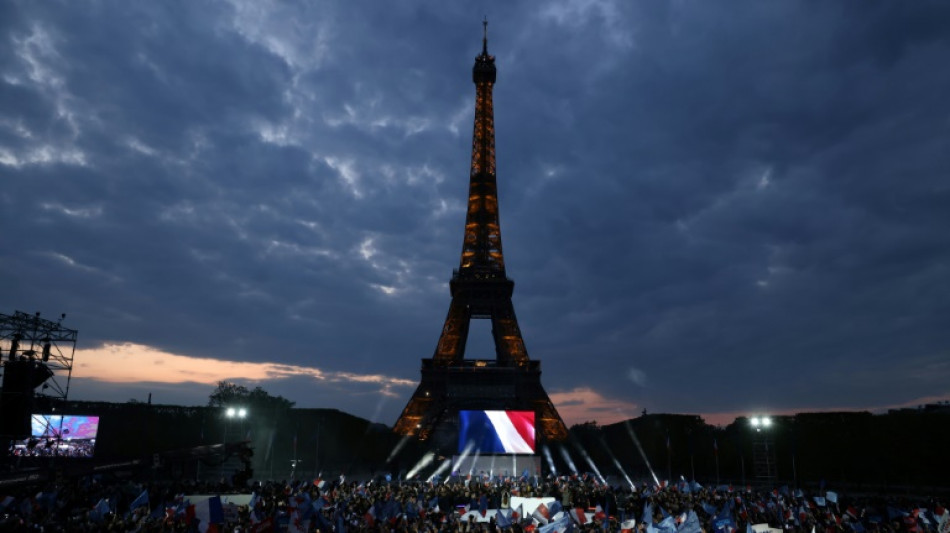
-
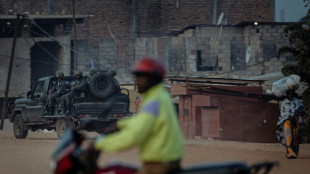 M23 militia says to pull out of key DR Congo city at US's request
M23 militia says to pull out of key DR Congo city at US's request
-
Thousands of glaciers to melt each year by mid-century: study
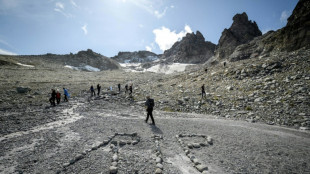
-
 China to impose anti-dumping duties on EU pork for five years
China to impose anti-dumping duties on EU pork for five years
-
Nepal starts tiger census to track recovery

-
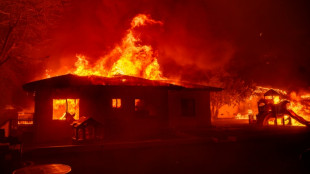 Economic losses from natural disasters down by a third in 2025: Swiss Re
Economic losses from natural disasters down by a third in 2025: Swiss Re
-
Indonesians reeling from flood devastation plea for global help

-
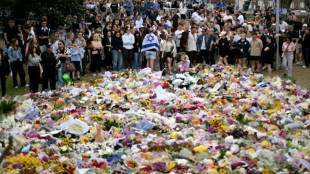 Timeline: How the Bondi Beach mass shooting unfolded
Timeline: How the Bondi Beach mass shooting unfolded
-
On the campaign trail in a tug-of-war Myanmar town

-
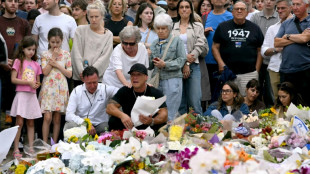 Bondi Beach suspect visited Philippines on Indian passport
Bondi Beach suspect visited Philippines on Indian passport
-
Kenyan girls still afflicted by genital mutilation years after ban
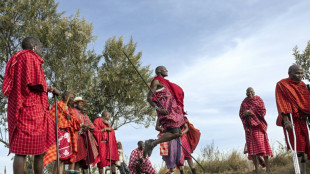
-
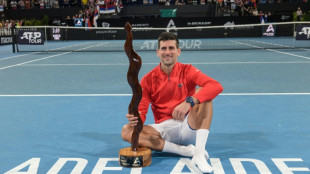 Djokovic to warm up for Australian Open in Adelaide
Djokovic to warm up for Australian Open in Adelaide
-
Man bailed for fire protest on track at Hong Kong's richest horse race

-
 Men's ATP tennis to apply extreme heat rule from 2026
Men's ATP tennis to apply extreme heat rule from 2026
-
10-year-old girl, Holocaust survivors among Bondi Beach dead
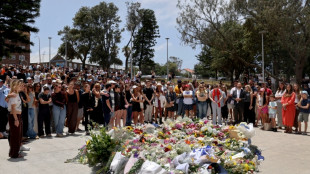
-
 Steelers edge towards NFL playoffs as Dolphins eliminated
Steelers edge towards NFL playoffs as Dolphins eliminated
-
Australian PM says 'Islamic State ideology' drove Bondi Beach gunmen
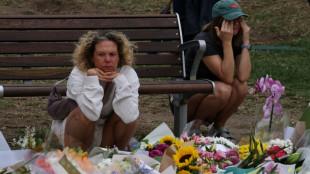
-
 Canada plow-maker can't clear path through Trump tariffs
Canada plow-maker can't clear path through Trump tariffs
-
Bank of Japan expected to hike rates to 30-year high

-
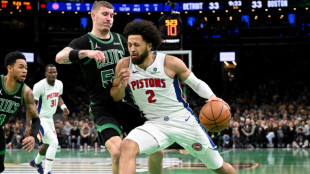 Cunningham leads Pistons past Celtics
Cunningham leads Pistons past Celtics
-
Stokes tells England to 'show a bit of dog' in must-win Adelaide Test

-
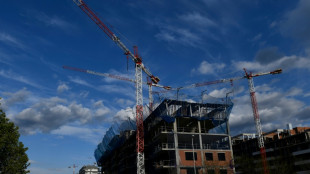 EU to unveil plan to tackle housing crisis
EU to unveil plan to tackle housing crisis
-
EU set to scrap 2035 combustion-engine ban in car industry boost
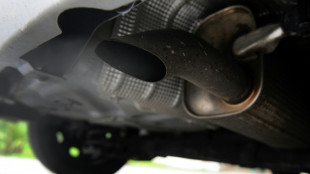
-
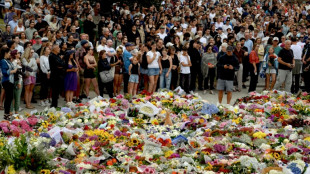 Australian PM visits Bondi Beach hero in hospital
Australian PM visits Bondi Beach hero in hospital
-
'Easiest scam in the world': Musicians sound alarm over AI impersonators

-
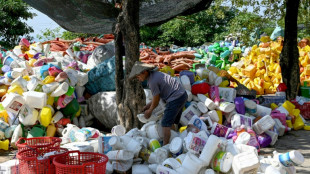 'Waiting to die': the dirty business of recycling in Vietnam
'Waiting to die': the dirty business of recycling in Vietnam
-
Asian markets retreat ahead of US jobs as tech worries weigh
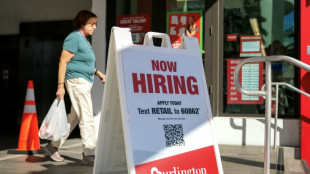
-
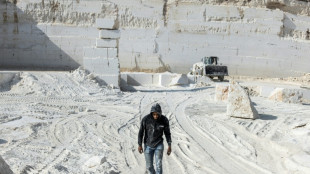 Famed Jerusalem stone still sells despite West Bank economic woes
Famed Jerusalem stone still sells despite West Bank economic woes
-
Trump sues BBC for $10 billion over documentary speech edit
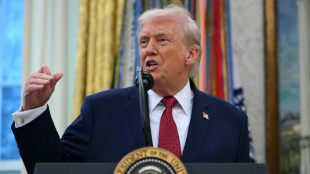
-
 Chile follows Latin American neighbors in lurching right
Chile follows Latin American neighbors in lurching right
-
Will OpenAI be the next tech giant or next Netscape?

-
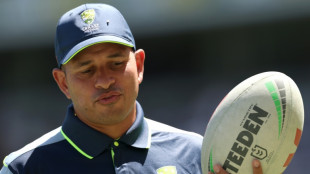 Khawaja left out as Australia's Cummins, Lyon back for 3rd Ashes Test
Khawaja left out as Australia's Cummins, Lyon back for 3rd Ashes Test
-
Australia PM says 'Islamic State ideology' drove Bondi Beach shooters
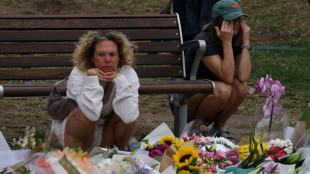
-
 Scheffler wins fourth straight PGA Tour Player of the Year
Scheffler wins fourth straight PGA Tour Player of the Year
-
New APAC Partnership with Matter Brings Market Logic Software's Always-On Insights Solutions to Local Brand and Experience Leaders

-
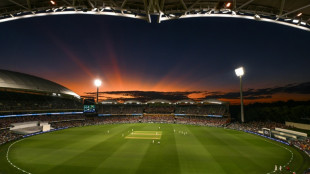 Security beefed up for Ashes Test after Bondi shooting
Security beefed up for Ashes Test after Bondi shooting
-
Wembanyama blocking Knicks path in NBA Cup final

-
 Amorim seeks clinical Man Utd after 'crazy' Bournemouth clash
Amorim seeks clinical Man Utd after 'crazy' Bournemouth clash
-
Man Utd blow lead three times in 4-4 Bournemouth thriller

-
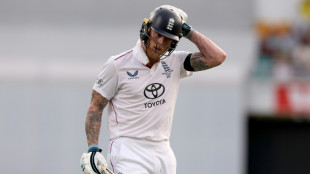 Stokes calls on England to 'show a bit of dog' in must-win Adelaide Test
Stokes calls on England to 'show a bit of dog' in must-win Adelaide Test
-
Trump 'considering' push to reclassify marijuana as less dangerous
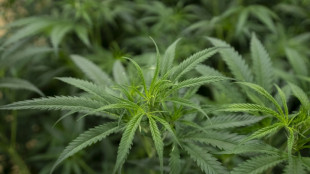
-
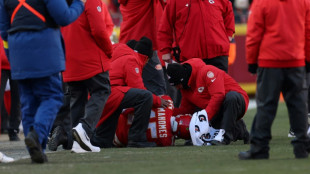 Chiefs coach Reid backing Mahomes recovery after knee injury
Chiefs coach Reid backing Mahomes recovery after knee injury
-
Trump says Ukraine deal close, Europe proposes peace force
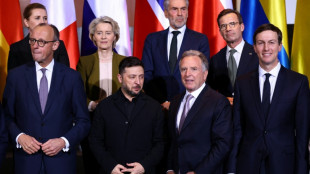
-
 French minister urges angry farmers to trust cow culls, vaccines
French minister urges angry farmers to trust cow culls, vaccines
-
Angelina Jolie reveals mastectomy scars in Time France magazine

-
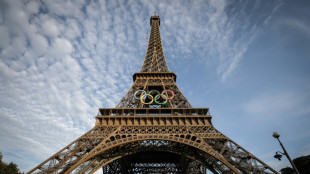 Paris Olympics, Paralympics 'net cost' drops to 2.8bn euros: think tank
Paris Olympics, Paralympics 'net cost' drops to 2.8bn euros: think tank
-
Chile president-elect dials down right-wing rhetoric, vows unity
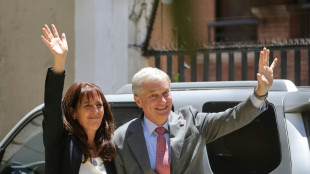
-
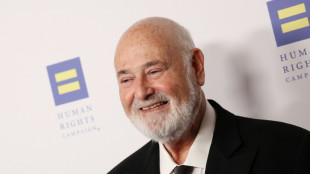 Five Rob Reiner films that rocked, romanced and riveted
Five Rob Reiner films that rocked, romanced and riveted
-
Rob Reiner: Hollywood giant and political activist
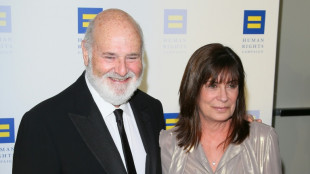
-
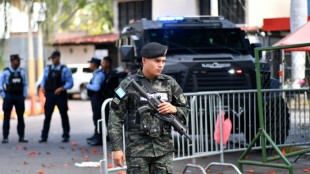 Observers say Honduran election fair, but urge faster count
Observers say Honduran election fair, but urge faster count
-
Europe proposes Ukraine peace force as Zelensky hails 'real progress' with US


A divided nation: Five takeaways from France's election
French President Emmanuel Macron has won re-election with a relatively comfortable majority, but his battle with far-right leader Marine Le Pen spotlights a France more divided than ever.
Le Pen recorded the best score ever for the French far right in Sunday's vote, prompting Macron in his victory speech to acknowledge a pressing need to unify the country.
AFP looks at five reasons Monday's celebrations at the Elysee Palace need to be tempered by sobriety.
- A polarised country -
The post-vote map of France shows startling regional disparities, with Macron largely enjoying support in Paris, the west, southwest and centre of the country, and Le Pen receiving backing in the northern industrial heartlands and Mediterranean south.
Big city centres, upper middle classes and pensioners backed Macron while lower-income groups were overwhelmingly in favour of Le Pen.
"The biggest fractures are above all generational and social," said Mathieu Gallard, the research director of the Ipsos France polling firm, saying that dividing the country into an urban pro-Macron camp and a rural pro-Le Pen did not fully correspond to reality.
- Troubling boycott -
Turnout was just 72 percent, with abstentions at their highest in any second-round run-off vote in France since Georges Pompidou defeated Alain Poher in 1969.
In an alarming signal for Macron, 8.6 percent of those who went to voting stations Sunday also took the trouble not to cast a vote for either candidate, with 6.35 percent of the votes blank and 2.25 percent spoilt.
Taken together, these factors mean over a third of registered voters in France did not make a choice in the election.
Macron "is submerged in an ocean of abstention and spoilt ballots," said hard-left leader Jean-Luc Melenchon, who came third in the first round.
- Street protests -
Sporadic protests in cities including Paris, Rennes and Toulouse took place after the results were announced, by ultra-left demonstrators furious at the choice France had in the election.
Police used tear gas and charged protesters, and while the protests were relatively small, they risk being a harbinger of things to come, especially if radical parties do not receive major representation in June parliamentary elections.
"Here we go for another five years of liberalism led by a Parisian oligarchy which has done a lot of damage to the country," said Joroni Piques, a protester in Toulouse who did not vote on Sunday.
- Generational divide -
For a man who is just 44, Macron is still struggling to make a major impact among younger voters and remains reliant on large support among seniors to get over the line.
Figures by Ipsos and data analysis firm Sopra Steria show that while 61 percent of votes from 18- to 24-year-olds went to Macron, 41 percent of people in that age group did not vote at all.
His victory margin was narrow among those aged 25-34 and 35-49, and Le Pen was even slightly ahead among the 50-59 age group.
It was only among pensioners that Macron could count on a bedrock of support, with 71 percent of votes from those aged 71 or over going to the president, according to the Ipsos-Sopra Steria report.
"We have an aged France that massively supported Emmanuel Macron and a younger France that partially turned their backs on the vote," political analyst Jerome Jaffre told LCI television. "It's a major sociological gulf."
- Lost territories -
Macron is always keen to play up France's global reach through overseas territories that are integral parts of the country and have a total population of almost three million.
But his performance was generally poor beyond the mainland, failing to attract voters who had backed Melenchon in the first round.
Playing on anger against Paris and Macron as a leader, Le Pen came out easily on top in France's main Caribbean islands of Guadeloupe and Martinique as well as in French Guiana in South America and the Indian Ocean islands of Reunion and Mayotte.
He could only claim victory in the islands in the Pacific such as New Caledonia and French Polynesia.
"The anti-Macron feeling has considerable power," said Martial Foucault, a political scientist Sciences Po university in Paris. "A vote for Le Pen is a vote by default, it does not mean supporting."
Ferreira--PC
